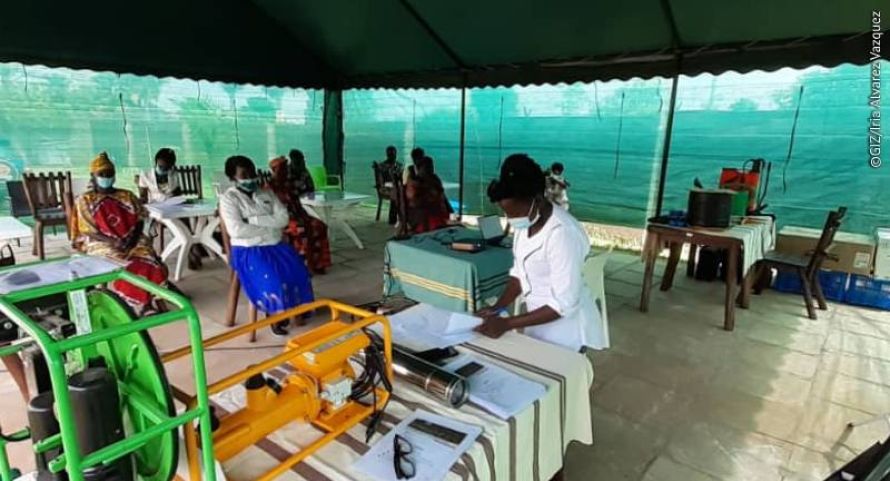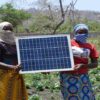Women farmers switch to solar-powered water pumps

After learning about the advantages of solar-powered water pumps in a workshop organised by Green People’s Energy (GBE) Uganda, the women of two cooperatives are now starting vegetable production in shared greenhouses.
With solar-powered water pumps, farmers can irrigate in a way that protects the environment, resources and health, and is also cheaper in the long run. The women of the cooperatives Gum palacwec and Tam pi anyim B learned about these advantages in a workshop organised by GBE.
At the beginning, hardly any of the women farmers knew about the method and advantages of solar-powered irrigation systems (SPIS). This changed quickly during the workshop: the women farmers were very open and interested in the technology and learnt, in addition to the pure irrigation technology for different crops, about the maintenance, the dos and don’ts and when to call a technician if the system is not working.
Other topics and practices included the use of solar energy to seal packaging bags, for solar drying and grinding of produce, and its relevance for communication by charging phones, radios or television. The interest of the women farmers was very high and resulted in the jointly agreed plan to use the newly acquired knowledge to draw up and implement a vegetable farming plan for the year – amongst others in greenhouses that they had already set up previously with the support of GBE Uganda.
The workshop also marked the start of an event series that will be offered in the coming weeks at GBE Uganda’s training pavilion and demo garden for solar-powered irrigation systems. Cooperatives, farmer groups, smallholder farms, farmers and local government agricultural experts in northern Uganda are currently applying to attend the courses in order to learn about the benefits of renewable energy, especially solar irrigation, when it comes to increasing vegetable production.
This way 150 users and 120 technicians will be trained in the coming weeks, and in turn share their newly acquired knowledge in their communities. More such gardens are also to be set up with women farmers’ groups in order to promotein particular women’s access to decentralised renewable energies.





